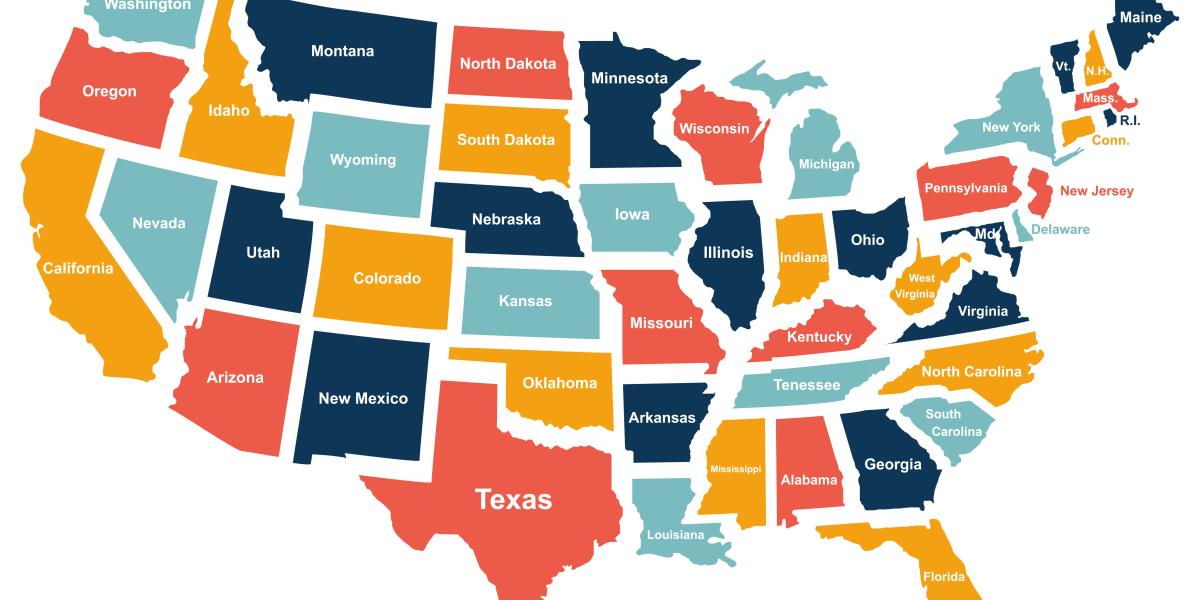One hundred sixty years after the war for Southern independence, great confusion is still caused by the claim that the South fought for their independence and for “states’ rights.” What does the doctrine of “states’ rights” mean in this context? The dictionary definition is easily understood: “the rights and powers held by individual US states rather than by the federal government.”
However, confusion arises as to the substantive meaning of this doctrine, as the notion has now become entrenched that states only have such rights and powers as may be granted to them by the federal government in its mercy. That notion is entirely wrong-headed because the opposite is the case: the federal government only has such rights and powers as may be conferred upon it by the agreement of the people as delineated in the Constitution. As historian Clyde Wilson puts it, “The Constitution should be the instrument of society’s control of government, not vice versa.”
It is sometimes argued that the Constitution itself confers supremacy on the federal government to do whatever it considers appropriate in the discharge of its functions. Expressing that view, former President Barack Obama once said, “we have a supremacy clause in our constitution. When federal law is in conflict with state law, federal law wins out.” On the contrary, the doctrine of states’ rights, as explained by John C. Calhoun, holds federal law to be supreme only within the confines of its own sphere:
Calhoun pointed out that the [supremacy] clause itself stated that only laws “made in pursuance of the Constitution” were supreme. Thus, concluded Calhoun, federal and State laws were each supreme within their rightful spheres—a far cry from the claim that federal laws were categorically supreme over State laws.
The doctrine of states’ rights was widely understood in the nineteenth century as a constitutional doctrine denoting that sovereignty was vested in each state, as a means of resisting federal encroachment. States could exercise this sovereignty by, for example, the right of nullification or, ultimately, by the right to secede. The language of “rights” in this context means something done “rightfully” by the states under powers exercised as of right, rather than by the permission or grant of the federal authorities. Jefferson Davis wrote in the preface to The Rise and Fall of the Confederate Government that this was the right the Southern states fought to defend:
The object of this work has been from historical data to show that the Southern States had rightfully the power to withdraw from a Union into which they had, as sovereign communities, voluntarily entered; that the denial of that right was a violation of the letter and spirit of the compact between the States; and that the war waged by the Federal Government against the seceding States was in disregard of the limitations of the Constitution, and destructive of the principles of the Declaration of Independence.
Many libertarians are suspicious of the doctrine of states’ rights because it seems, on its face, to vest rights in the state as a collective entity. They reason that if all rights vest in individuals, then the state as a collective entity has no “rights.” This confusion is easily dispelled by recalling that the doctrine of states’ rights refers to the rights which sovereign states retained to themselves when forming the Union. As David Gordon explains, states retained “the right to do everything that free countries could do.” One might still ask, where do sovereign states, or countries, or nations, get their “rights”? In his article “Is Secession a Right?” Gordon traces the root of states’ right to the rights that vest in human beings:
Indeed, the right of secession follows at once from the basic rights defended by classical liberalism. As even Macaulay’s schoolboy knows, classical liberalism begins with the principle of self-ownership: each person is the rightful owner of his or her own body. Together with this right, according to classical liberals from Locke to Rothbard, goes the right to appropriate unowned property.
In this view, government occupies a strictly ancillary role. It exists to protect the rights that individuals possess independently — it is not the source of these rights. As the Declaration of Independence puts it, “to secure these rights [life, liberty, and the pursuit of happiness], governments are instituted among men, deriving their just powers from consent of the governed.
Viewed in that light, the doctrine of states’ rights does not denote rights that vest inherently in the state, but rights that vest in the individuals who together have formed the state for the defense and protection of their liberty. As Clyde Wilson explains, individual liberty lies at the heart of states’ rights: “for Jefferson, individual liberty and state sovereignty were indivisible.” Lew Rockwell also expands on this point:
Some libertarians object to [the doctrine of states’ rights]. They point out that only individuals have rights, not states. That’s true, but states’ rights aren’t in conflict with individual rights. The President of the Mises Institute, the great Tom DiLorenzo, explains why not: “The idea of states’ rights is most closely associated with the political philosophy of Thomas Jefferson and his political heirs. Jefferson himself never entertained the idea that ‘states have rights,’ as some of the less educated critics of the idea have claimed. Of course ‘states’ don’t have rights. The essence of Jefferson’s idea is that if the people are to be the masters rather than the servants of their own government, then they must have some vehicle with which to control that government. That vehicle, in the Jeffersonian tradition, is political communities organized at the state and local level. That is how the people were to monitor, control, discipline, and even abolish, if need be, their own government.
How then did the doctrine of states’ rights come to be shrouded in confusion? Clyde Wilson identifies the reasons for this as largely political:
States rights has fallen into disuse not because it is unsound in history, in constitutional law, or in democratic theory. It remains highly persuasive on all these grounds to any honest mind. It has fallen into disuse because it presented the most powerful obstacle to the consolidation of irresponsible power—that “consolidation” which our forefathers decried as the greatest single threat to liberty.
For that reason states rights had to be covered under a blanket of lies and usurpations by those who thought they could rule us better than we can rule ourselves. At the most critical time, the War Between the States, it was suppressed by force and the American idea of consent of the governed was replaced by the European idea of obedience. But force can only settle questions of power, not of right.
The doctrine of states’ rights is not quashed by the fact that the Southern states, which fought to defend the right to secede, lost the war. Hence Wilson echoes the prophetic words of John C. Calhoun: “Without a full practical recognition of the rights and sovereignty of the States, our union and liberty must perish.”

























